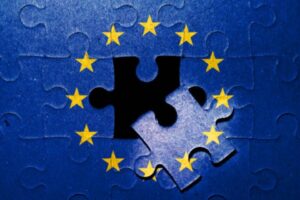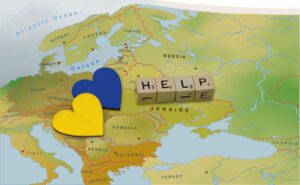The European Commission has signed a contract with the pharmaceutical company AstraZeneca for the purchase of a COVID-19 vaccine, according to a press release published by the Commission.
The contract is for the advance purchase of vaccines, outlined in the Advance Purchase Agreement approved on 14 August by AstraZeneca. The mass purchase of vaccines will be financed by the Emergency Support Instrument, which includes reserve funds dedicated to the creation and purchase of vaccines with different profiles and produced by different countries.
“The Commission is working non-stop to provide EU citizens with a safe and effective vaccine against COVID-19 as quickly as possible. The entry into force of the contract with AstraZeneca is an important step forward in this respect. I am looking forward to enriching our portfolio of potential vaccines thanks to contracts with other pharmaceutical companies and engaging with international partners for universal and equitable access to vaccination,” said President of the European Commission Ursula von der Leyen.
The contract between the two parties states that Member States will be able to buy 300 million vaccines, with the option to purchase an additional 100 million.
The purchase and donation of vaccines will be possible after the completion of the vaccines themselves. They are in phase II in large-scale testing, after seeming promising in phase I; there are three total phases before mass production and distribution can begin.
The signing of a contract for the advance purchase of vaccines will essentially lock the Commission and AstraZeneca into an agreement and will give Europe priority over other buyers. It also will allow AstraZeneca to be compensated for the EU for certain liabilities that could harm the vaccines’ effectiveness or slow production.
“Our negotiations have now delivered clear results: a first contract signed delivering on our commitment to ensure a diversified vaccine portfolio to protect the public health of our citizens. Today’s signature – made possible by the important groundwork undertaken by France, Germany, Italy, and the Netherlands – will ensure that doses of a vaccine which, if proven effective and safe, will be delivered across Member States. We expect to announce additional agreements with other vaccine manufacturers very swiftly,” said Commissioner for Health and Food Safety, Stella Kyriakides.
If there are vaccines left over after the EU, Schengen Area, and EEA are effectively vaccinated, the remaining vaccines will be donated to either third-world countries or given to other European countries to aid in their recovery as well.
AstraZeneca is a pharmaceutical company whose key areas of concentration are small molecules, biologics, medical devices, immunotherapies, personalized healthcare, and emergency drug discovery.
To develop a COVID-19 vaccine, AstraZeneca has teamed up with the University of Oxford to develop and distribute Oxford’s COVID-19 vaccine.
Since 4 May, the Commission has raised €16 billion under the Coronavirus Global Response, which is a global action for universal access to COVID-19 testing, treatment, and vaccinations to aid global recovery.















